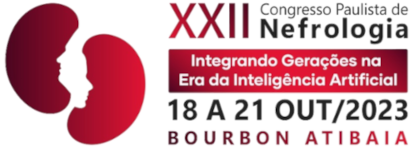Dados do Trabalho
Título
CAN WE USE MACHINE LEARNING WITH TEXT PROCESSING TO CLASSIFY NEPHROLOGY EVALUATIONS?
Introdução
Machine learning models could be used to classify narrative text fields in medical evaluation. This study aims to automatically classify nephrology request evaluations using machine learning text processing methods
Material e Método
We retrieved all medical request evaluations in a tertiary hospital in São Paulo State, Brazil from electronic medical records between June 2019 and August 2022. We fitted a model to predict the nephrologist response based on the categories: accepted, not accepted, and not accepted due to incomplete information. To fit the machine learning model, we split the data in train (80%) and test set (20%). We fitted a multinomial model using Lasso and neuronal network with an optimal regularization parameter (penalty) retrieved by 5-fold cross validation in the train set
Resultados
The number of medical request evaluations were 39,810. We selected from 39,810 records the requested for nephrology (n=702). For the nephrology requests, the median age was 61 (46-60) years, and (50%) female patients. The decision of nephrologists were: accepted for evaluation (n=452; 64%), patient already in treatment (n=110; 16%), not accepted due to incomplete information (n=22; 3.1%), not accepted (n=107; 15%) and not answered (n=11; 1.6%). The specialty that requested nephrology evaluation most frequently were: urology, endocrinology, cardiology, infectious disease, general medicine, hematology, rheumatology, neurology, gastroenterology, and oncology.
To fit the model, we excluded the missing evaluation resulting in 691 case analysis (552 train and 139 test). The best model was a Lasso multinomial regression retrieving an accuracy of 0.806 and multinomial ROC AUC of 0.609 in the test set.
The words that were higher associated with nephrology acceptance were: investigation, already with nephrology, lost follow-up, patients with hypertension. The words associated with not accepting were: kidney function, kidney ultrasound, and patient with diabetes. The medical specialty that was higher associated with acceptance was oncology. The specialty associated with not acceptance were: pediatrics and gastro surgery. Patient age, month and year of the solicitation were not associated with the model outcome
Discussão e Conclusões
We fitted a model to automatically classified the nephrology requests with good measures of accuracy. Some groups of words and possibly clusters of patients had more probability of being accepted from a nephrology evaluation
Palavras Chave
machine learning; text processing; nephrology evaluations
Área
Nefrologia clínica
Instituições
UNESP - São Paulo - Brasil
Autores
MARIA CLAUDIA DOS SANTOS PINTO, ABNER MACOLA PACHECO BARROS, JULIANA TEREZA CONEGLIAN ALMEIDA, JULIANA MACHADO RUGOILO, LUCAS FREDERICO ARANTES, NAILA CAMILA ROCHA, MARILIA MASTROLA CARDOSO DE ALMEIDA, MONICA AP DE PAULA DE SORDI, LUIS GUSTAVO MODELLI DE ANDRADE
